Think. Think. Think. A bold title, Think Journal’s very name is a promise to its readers. As Editor Christine Yurick says, “I am drawn to work where something happens, something more than a fleeting moment of insignificance, something with depth and importance.” Something that makes you think. It’s a promise that is fulfilled. There’s no lack of action or rumination in this journal, which is certainly something worth applauding. Think Journal publishes pretty much any genre by emerging and established writers. Its writers ask you to think about issues that are both personal and universal – love, desire, grief, etc. Continue reading “Think Journal – Spring 2010”
NewPages Blog
At the NewPages Blog readers and writers can catch up with their favorite literary and alternative magazines, independent and university presses, creative writing programs, and writing and literary events. Find new books, new issue announcements, contest winners, and so much more!
Think Journal – Spring 2010
Spread the word!
Versal – 2010
Produced in Amsterdam, universal in terms of themes, distinctly European in terms of innovation and overall quality, borderless in its aspirations, and utterly accessible to US readers, thanks to its publication in English, this issue of Versal is provocative, inventive, perplexing, and stimulating. Standout contributions include Paul Lisson’s short story “In Progress,” Norman Lock’s prose poem “Alphabet of the Birds,” Stacy Elaine Dacheux’s stroy “The Sociology of Containers,” and sudden fiction by June Melby, “In Soup”: Continue reading “Versal – 2010”
Spread the word!
Willow Springs – Fall 2010
Willow Spring’s Fall issue’s centerpiece is the Fiction Prize winner “Color by Numbers” by Stacia Saint Owens, the tale of parallel lives with divergent destinies, recounted in parallel columns that merge and then separate again. It’s an effective and appropriate form and an emotionally challenging piece. A long interview “conversation” (multiple questioners) with fiction writer and journalist Jess Walter takes up much of the rest of the issue. Walter is adamant that reports of narrative’s demise are dead wrong, everyone yearns for story, and he’s thoughtful and articulate about his own plots, devices, and creative tendencies. Continue reading “Willow Springs – Fall 2010”
Spread the word!
Jeremy Benson :: NewPages Literary Magazine Review Editor
 NewPages welcomes Jeremy Benson as the new Literary Magazine Review Editor.
NewPages welcomes Jeremy Benson as the new Literary Magazine Review Editor.
Jeremy writes stories, poems, criticism and letters. In 2008, he received a degree in English and Creative Writing from Hope College in Holland, MI, with supplementary courses through Western Michigan University’s Prague Summer Program. He is the Postmaster General for the Aloha Project, the poem-on-a-postcard blog that celebrates National Poetry Month, and is a proud dork for Paul Simon, RadioLab, and LEGO.
Immediately upcoming on his to-read list, Jeremy has Tinsel Strength by Robin Brox, an essay or two by David Foster Wallace, a book about knots and a magazine on workshop organization, and your soon-to-be-submitted literary magazine reviews–the latter obviously taking priority over the rest. So let’s get him started: visit the NewPages writer’s guidelines, then send him a message at jeremybenson[*at*]newpages.com.
Spread the word!
Iowa Review Change of Editors
 Outgoing at The Iowa Review are Associate Fiction Editor Michael Fauver and Associate Poetry Editor Emily Sieu Liebowitz. No news as yet on incoming.
Outgoing at The Iowa Review are Associate Fiction Editor Michael Fauver and Associate Poetry Editor Emily Sieu Liebowitz. No news as yet on incoming.
Spread the word!
Big Muddy 2010 Contest Winners
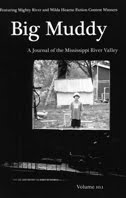 The newest issue of Big Muddy: A Journal of the Mississippi Valley features the Southeast Missouri State University Press’s 2010 Fiction Contest Winners. Kel Munger (“Missus Finn”) won the Mighty River Short Story Contes and Erica Lehrer won the Wilda Hearne Flash Fiction Contest. James H. Crews, Jr. is this years winner of the Copperdome Chapbook Contest for What Has Not Yet Left to be published by MSUP.
The newest issue of Big Muddy: A Journal of the Mississippi Valley features the Southeast Missouri State University Press’s 2010 Fiction Contest Winners. Kel Munger (“Missus Finn”) won the Mighty River Short Story Contes and Erica Lehrer won the Wilda Hearne Flash Fiction Contest. James H. Crews, Jr. is this years winner of the Copperdome Chapbook Contest for What Has Not Yet Left to be published by MSUP.
Spread the word!
Alexie Banned in Stockton,Missouri
Sherman Alexie’s book remains banned in Stockton, Missouri.
Spread the word!
Women Writers – Slate Looks at the Issue of the Numbers
Slate in on the research prowl, delving into “More Troubling Data About Women Writers” – the disproportionate numbers between genders when it comes to publishing, recognition and awards.
Spread the word!
Former Booker Prize Judge Holds Writing Contest on Twitter
 Master storyteller and former Booker Prize judge Frank Delaney is launching his second Twitter Writing Challenge on Monday, September 13: write the best, most arresting simile you can in 140 characters or less. “Similes add flavor and clarity; they fix an image in the reader’s mind. A good simile in a passage of writing is like a raisin in a cake — sweet, and separately memorable, it heightens the relish,” the bestselling writer and former BBC broadcaster explains.
Master storyteller and former Booker Prize judge Frank Delaney is launching his second Twitter Writing Challenge on Monday, September 13: write the best, most arresting simile you can in 140 characters or less. “Similes add flavor and clarity; they fix an image in the reader’s mind. A good simile in a passage of writing is like a raisin in a cake — sweet, and separately memorable, it heightens the relish,” the bestselling writer and former BBC broadcaster explains.
The prize for the three best simile writers is lunch with Frank Delaney in New York City, whenever the winner is in town (and barring scheduling conflicts,) or a signed copy of the Advanced Readers Edition of Frank’s next novel “The Matchmaker of Kenmare” (Random House, February 2011).
Spread the word!
Lynchberg College Residencies
The Thornton Writer Residency, a fourteen-week residency at Lynchburg College, including a stipend, is awarded annually to a fiction writer for the fall term & a poet or creative nonfiction writer for the spring term. The residency also includes housing, some meals, & round trip travel expenses. The writer-in-residence will teach a weekly creative writing workshop, visit classes, & give a public reading. Submit a copy of a previously published book, a curriculum vitae, a cover letter outlining evidence of successful teaching experience, & contact information for three references by October 15, 2010. There is no entry fee. If you would like your book(s) returned, please submit a SASE with sufficient postage. Visit the website for more information.
Spread the word!
Ditching Bestsellers
Oxfam’s list of most donated bestsellers. At least some of them also make the Oxfam Bestsellers list.
Spread the word!
Kentucky Arts Council Teachers Initiated Program Grants
The Kentucky Arts Council is offering Teacher Initiated Program grants for short-term artist residencies scheduled to take place in the spring of 2011. These grants give professional artists an opportunity to demonstrate their art forms and provide students and teachers repeated hands-on experiences in the making of art. Artists also collaborate with teachers to design and implement innovative programs that provide the tools to continue utilizing art across the curriculum after the residency is completed. Application Deadline: October 15, 2010
Spread the word!
Witness (re)Turns to Three Issues Per Year
Witness had announced that in 2011, the publication will be “returning to its roots”: in addition to their annual print issue, they will begin publishing two online-only issues each year in May and September. The print issue will be devoted to a single topic, the theme of which will be announced at the opening of their submission period, and the online issues will feature new work of any theme.
“Blurring Borders,” their thematic print issue, will be available in January, followed by an online issue in May and another in September. Then, in January 2012, Witness will publish their next print issue, focused on disaster. New calls for submissions for all of these editions can be found at their web site.
By publishing online-only issues, Witness editor Amber Withycombe say the publication “will be able to cost-effectively share more writing with you and simultaneously grant broader access to the work we publish. We will make no distinction between the quality of the work that appears in our print and online issues, and contributors to each medium will be paid equally. Additionally, all of our online content will be free to readers.”
Spread the word!
Tupelo Press Subscription Books
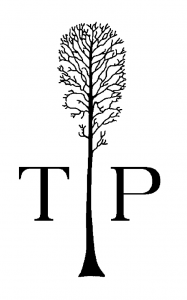 Tupelo Press has compiled their 2010 subscription list of books. For $99 you can get nine books – shipping included. A great deal on some notable authors’ works presented in high quality production: John Cross (Winner of the 2007 Snowbound Chapbook Award), Martha Zweig, Ilya Kaminsky, Gary Soto, Rebecca Dunham, Megan Snyder-Camp, Ellen Dor
Tupelo Press has compiled their 2010 subscription list of books. For $99 you can get nine books – shipping included. A great deal on some notable authors’ works presented in high quality production: John Cross (Winner of the 2007 Snowbound Chapbook Award), Martha Zweig, Ilya Kaminsky, Gary Soto, Rebecca Dunham, Megan Snyder-Camp, Ellen Dor
Spread the word!
Millay Colony for the Arts Inaugurates Cave Canem Residency
 September 1, 2010 (Austerlitz, NY) Millay Colony for the Arts inaugurates a Cave Canem Residency beginning with the 2011 season. The Colony, which offers one-month residencies to six visual artists, writers and composers every month between April and November, has designated one of each year’s 48 coveted spots for a Cave Canem poet.
September 1, 2010 (Austerlitz, NY) Millay Colony for the Arts inaugurates a Cave Canem Residency beginning with the 2011 season. The Colony, which offers one-month residencies to six visual artists, writers and composers every month between April and November, has designated one of each year’s 48 coveted spots for a Cave Canem poet.
Founded in 1996 by poets Toi Derricotte and Cornelius Eady to remedy the under-representation and isolation of African American poets in MFA programs and writing workshops, Cave Canem is a home for the many voices of African American poetry and is committed to cultivating the artistic and professional growth of African American poets.
“We’re pleased to partner with the Millay Colony for the Arts to establish an annual residency for a Cave Canem poet,” said Cave Canem Executive Director Alison Meyers. “Opportunities for writers to work uninterrupted in tranquil surroundings are rare—so this residency is a very welcome addition to our program of services.”
Caroline Crumpacker, Executive Director of the Millay Colony, agreed. “All of us at The Millay Colony are honored to be working with Cave Canem, a generous/generative organization that has added so much depth and intelligence to the conversation around and within contemporary poetry. We very much look forward to welcoming Cave Canem fellows to our Colony and, thereby, expanding the conversation that takes place here.”
To Apply:
Cave Canem Fellows will go through the juried application process. One Fellow is guaranteed a residency. The rest of the Cave Canem Fellows who’ve applied will also be considered for additional spots.
Online application submission for 2011 Residency Program.
Application submissions via mail also available for 2011 season.
Cave Canem Fellows should indicate their status as such in the application. Details and form are available on the website. Applications must be postmarked or posted by October 1, 2010 for a month-long residency in 2011.
For more information, please call our Residency Director Calliope Nicholas at 518-392-3103 or email at residency-at-millaycolony-dot-org.
Spread the word!
Zombie 101?
Zombies are the subject of a new course at University of Baltimore – ENG333 (really? half of 666?). “It’s a back door into a lot of subjects,” Jonathan Shorr, chair of the university’s school of communications design, says. “They think they’re taking this wacko zombie course, and they are. But on the way, they learn how literature and mass media work, and how they come to reflect our times.”
Spread the word!
Fiction Residency George Washington University
The George Washington University 2011–2012 Jenny McKean Moore Writer-In-Washington (Fiction). An appointment beginning in the fall of 2011 for a writer of fiction to teach two semesters at The George Washington University as the Jenny McKean Moore Writer-in-Washington.
The successful candidate will teach a small fiction workshop each semester for members of the metropolitan Washington community. No tuition is charged for these workshops, which are not open to University students. The successful candidate will also teach two classes, one each semester, for students at The George Washington University.
This position is funded by an endowment from the Jenny McKean Moore Fund for Writers. The late Jenny McKean Moore, who had been a playwriting student at The George Washington University, left in trust a fund to encourage creative writing, & the trustees of the Fund helped design the program. The position is intended to serve as a fellowship for the visiting writer, since it involves only a moderate teaching load, & the program’s location at a university in the center of Washington should offer additional attractions for the writer.
The writer must have significant publications (fiction published by a well regarded press) & a demonstrated commitment to teaching. Like students in the community workshops, the writer need not have conventional academic credentials. He or she should reside in the Washington area while the University is in session, 1 September through early May. The historic Lenthall House, a 4-story Federal-era townhouse on campus, is normally available to the visiting writer through a subsidized rental agreement. The salary for 2011–2012 is expected to be $58,000 plus an attractive benefits package.
To be considered, applications for the 2011–2012 Writer-in-Washington position must be made by letter, indicating publications & other projects, extent of teaching experience, & other qualifications. The application must also include a resume & a selection of published fiction. Applicants are encouraged to send a book as their sample. Books will be returned if accompanied by an appropriate SASE. Only complete applications will be considered.
Review of all applications will begin on November 1, 2010 & will continue until the position is filled.
Applications should be sent to: Professor Gayle Wald, Chair, Department of English, 801 22nd St., NW (Suite 760), The George Washington University, Washington, DC 20052.
Spread the word!
Emerging Adulthood Observed in Literature
Psychologist studying “emerging adulthood” of 18-to-20-something characterize by five features, according to Clark University psychologist Jeffery Arnett: identity exploration, instability, feeling in-between, a sense of possibilities and self-focus. Sarah Barmak explores this new area of study looking at characters in literature, authors, and supporting cultural influences: Why 30 is the New 20.
Spread the word!
Christian Teresi on Violence in Art
“I think about films and films that depict violence and don’t participate in the violence they depict. And there are films that depict violence and do participate in the violence they depict. It’s something I’ve really been thinking about over the last decade or so. I just saw a film I had to walk away from because I felt it was so violent to the viewer that it inflicted violence on them. Whereas a film like Boys Don’t Cry was about violence to this person, but the film wasn’t violent to us. I read about it. The directors and the actors really worked hard not to do that.
“Like when you watch a film that depicts a rape, and it’s horrifying and you can’t stop thinking about it for months, and we’re supposed to leave thinking rape is terrible, and that somehow its been done to us. I don’t think that is necessary at all. We have an imagination, and we can empathize without undergoing a violent act. So I’m very interested in ways art can move you and touch you but not afflict you. Look at Shakespeare. We read King Lear and you’re like, oh, my god, don’t do this, don’t do it. Cordelia’s over here and Lear’s in the storm, and you have to just stop reading and cry and put your head down, but it doesn’t feel as though it’s being done to us. It’s something we recognize. We too can be as obstinate and blind as Lear. We can see what’s happening. We participate, but we’re not being asked to carry it for Shakespeare.”
From An Interview with Marie Howe by Christian Teresi, The Writer’s Chronicle (May/Summer 2010).
Spread the word!
New Lit on the Block :: Rubric
Based out of The University of New South Wales, Sydney, Australia, Rubric is “an online interdisciplinary journal centred around the ideas of text and writing.” Previously only open to UNSW students, the new incarnation of Rubric is open to local and international work in all areas of creative writing and writing theory. The editorial team includes Josh Mei-Ling Dubrau, Kylar Loussikian, Ralph Stevenson, and Tanya Thaweeskulchai.
Rubric is a peer reviewed journal supported by the editorial board of Pam Brown (Associate Editor, Jacket Magazine), Paul Dawson (University of New South Wales), John Hawke (Monash University), Cate Kennedy (joining in 2011), Elizabeth McMahon (University of New South Wales), Stephen Muecke (University of New South Wales), Gordon Thompson (Victoria University, Melbourne), John Tranter (Editor, Jacket Magazine), and Alan Wearne (University of Wollongong).
This first issue of the new Rubric includes works by Alexandra Duggan, Amelia Streets, Kathleen Stewart, Narelle Goulden, Ralph Stevenson, Sam McAlpine, Shane Lee, Sylvia Petter, and Tamryn Bennet, whose graphic poem is llustrated by Skye O’Shea.
Rubric accepts works of poetry, prose, ficto-criticism, new media, and non-fiction, including short academic papers dealing with topics related to text and writing. Submissions are accepted from undergraduate, graduate, and academic sources and are peer reviewed by the appropriate member of Rubric‘s editorial board. The next deadline for submissions is October 1, 2010.
Spread the word!
Art & Text: Nancy Spero’s Torture of Women
“Nancy Spero’s Torture of Women is an epic work. Two years in the making, it’s composed of fourteen panels and totals 125 feet. Juxtaposing image and text, Spero collaged imagery drawn from ancient mythology with hand-printed and typewritten words. She collected first person testimony culled from Amnesty International reports, news items on women missing or dead, definitions of torture from the twentieth and thirteenth centuries, as well as the retelling of violent Sumerian and Babylonian creation myths, such as Tiamat being disemboweled by Marduk to create the heavens. Completed in 1976, and published this spring by Siglio Press, Torture of Women bears witness to what is often officially denied or left unspoken. It reveals the presence of the silent consensus, which allows the violence to be state-sanctioned and eternally mythologized.” Guernica Magazine
Spread the word!
Lady Chatterly Could Incite Prison Fights?
“A federal judge has declared unconstitutional a Virginia prison policy that denies inmates access to classic literature with sexually explicit passages but allows them to peruse Playboy magazine…Prison officials argued that sexually explicit materials ‘are considered valuable currency and used in bartering’ by inmates, and that the possession of such items can lead to theft and fights.” [Larry O’Dell, AP]
Spread the word!
New Lit on the Block :: ESQUE
Under the superior editorship of Amy King and Ana Bozicevic, ESQUE is a newly launched online journal. The first issue features work by poets loosely grouped under the categories of OETRY (“the kitchen sink”) and IFESTO (“everything but”).
OETRY includes “the texts of poets’ native turf: poems, prose poems, verse-fragments, visual po-work.” Contributors to this first issue are Charles Bernstein, Bei Dao, Tamiko Beyer, Jackie Clark, Amy De’Ath, Lidija Dimkovska, Kate Durbin, Steven Karl, Natalie Lyalin, Filip Marinovich, Sharon Mesmer, Miguel Murphy, Ariana Reines, Saeed Jones, Tomaz Salamun, Evie Shockley, Heidi Lynn Staples, Leigh Stein, Cole Swensen, John Tranter, and Matvei Yankelevich.
IFESTO is “a field for poets to lucidly engage beyond their poetry. It may include: manifestos, rants, theoretical or personal essays, half-formed statements of poetics, travelogues, music or literary or art critiques, a recurring dream.” Contributors to this first issue are Jennifer Bartlett, Jillian Brall, Ching-In Chen, Ken Chen, Rachel Blau DuPlessis, Jennifer H, Fortin, Molly Gaudry, Roxane Gay, Matt Hart, Brenda Hillman, Dan Hoy, Ron Padgett & Olivier Brossard, Lars Palm, Joan Retallack, Brandon Shimoda, Anne Waldman, Franz Wright, and Carolyn Zaikowski.
ESQUE is a flash site, so allow a minute for the full content to load. Individual author’s works are available to print via PDF.
Spread the word!
Sandburg-Auden-Stein Residency – 2012
Intensive Learning Term poet-in-residence program, from 30 April to 18 May 2012: 2012 Sandburg-Auden-Stein Residency.
During the 2012 Intensive Learning Term, the Olivet College Humanities Department will offer its sixth poet-in-residence position. The Sandburg-Auden-Stein poet will live on or near campus and teach ENG 247: Poetry Writing. The Sandburg-Auden-Stein poet will also host two public events: a public reading of his or her work and a stand-alone talk/discussion on a subject of his or her choice (publishing poetry, beat poets, def poetry, etc.).
An award of $3,100 (plus room and board) will be given to the 2012 poet. The Humanities Department faculty will evaluate the submissions and choose the winner. Poets who have published at least one book of poetry are eligible.
Submissions are due on Sept. 10, 2010, and should include the following: five poems from your most recent book, a single page personal statement regarding your poetics and teaching, a current résumé and two references. There is no entry fee. Please contact Kirk Hendershott-Kraetzer, Ph.D., Humanities Department chair, with your questions at (269) 749-7621 or khendershottkraetzer(at)olivetcollege(dot)edu
Electronic applications are strongly encouraged: .rtf, .doc, .docx formats accepted, .pdf preferred. Send to khendershottkraetzer(at)olivetcollege(dot)edu with “Residency application” indicated in the subject line.
Application materials also may be sent by regular mail to:
Sandburg-Auden-Stein Residency
Office of the Dean
Olivet College
320 S. Main St.
Olivet, MI 49076
Spread the word!
CFS The Southern Poetry Anthology – Georgia
Editors Paul Ruffin and William Wright now seek submissions for the fifth volume in the series THE SOUTHERN POETRY ANTHOLOGY, featuring Georgia poets. The anthology will be published by Texas Review Press in 2012.
If you are a Georgia native, or if you have lived in Georgia for more than one year at any time, please feel free to send up to five poems for consideration. This anthology is not limited to those who have published before; first-time submitters are invited as well as those who have had full-length poetry books published by national presses. The only rules: Poems must be original and of high quality.
The editors will consider formal poems and free verse, as well as hybrid forms like prose poems. Poems about Georgia are not necessarily championed over other motifs and themes, as the editors wish for the “sense of place” to manifest in different ways, with different voices.
Please note that the success of this anthology depends a great deal on word of mouth. Notify your poetry students, poetry-writing friends, and gifted nemeses of this opportunity.
SUBMISSION REQUIREMENTS
Please submit your poems to the Series Editor and Volume Editor, William Wright, at vercimber-at-hotmail-dot-com. Please type “Georgia Poetry Submission” in your subject heading, then include your first and last names in parentheses. For example: Georgia Poetry Submission (William Wright). Unfortunately, snail-mail submissions are not possible given the nature of our editing process.
Please include a short cover letter within the text of the e-mail, as well as names of the poems submitted. Submit a maximum of five poems, and ensure that the poems are sent in .rtf (Rich Text Format), .doc (World 97-03), or .docx (Word 2007) format. Please include all submitted poems in only one attachment (this is important).
All submissions should include a brief bio (up to 150 words) after the poems and on a separate page. Please italicize names of publications.
The editors welcome both new and previously published work. However, if poems have been previously published, submitters must hold rights to them and provide full publication data (journal and/or book publisher, title of book/journal if applicable, date of publication). Finally, please make sure that each submission includes a preferred e-mail address and street mailing address within the text of the e-mail and on at least one page of the attached submission.
Submission Deadline: NOVEMBER 30 (Early submissions encouraged!)
Spread the word!
Holding Links for Ransom
Back in the old days of Internet, used to be that you would write to someone whose site you admire and ask them to consider linking to your site. You would have already posted a link to that other site on yours because you were showing them that you admired and respected their work; you would like to think the feeling could be mutual. If it was, great, if not – eh, no big deal.
So why is it I get so many requests from people asking us to list them on NewPages, and when I visit their site – no link to NewPages? I do see links to other sites, but none to ours. Has there been a shift in polite protocol for link requests? Are links now held for ransom, or more a tit for tat procedure – IF you link to me, THEN I’ll link to you – ?
I know that’s not how we do it at NewPages. If we discover a site that we like and don’t have listed – well, by golly, we list it, then we let the person know we’ve listed it. We don’t hold the link for “exchange ransom.” If we’re linked back – that’s great – but we must still be of the totally old school that just likes to link and let folks know we appreciate what they do. Not only that, but we continue to check our links on a regular basis, since often times sites change or disappear or discontinue without letting their link pals know. So we manage and maintain all of these links ourselves. We do it because we know our readers depend on us for this. Decent links to decent sites.
So, how ’bout it – can we bring back this decency somehow in link requests?
Spread the word!
CFS for New Academic Journal: Scribe
Scribe: A Journal of Writing Perspectives and Pedagogy in Two-Year Colleges is up an running!
The editors are looking for essays to be published in the first issue, coming out in December. If you are interested, please send your submissions to twoyeardigest-at-live-dot-com.
Submission Guidelines
• Submissions should be 500 to 4,000 words in length.
• All pages should be double-spaced and in current MLA format.
• The review process is blind. Please submit a cover page with your submission that includes the title, date of submission, your name, school or organization, and contact information.
• Include a biography that is 100 words or fewer.
• Manuscripts submitted to the Journal must be original and unpublished work of the author(s) and must not be under consideration by other publications.
• It is the author’s responsibility to obtain any necessary written permission for use of copyrighted material contained within the article.
•Send submissions and questions to twoyeardigest-at-live-dot-com. In the subject line, please put SUBMISSION. The deadline is Oct. 15, 2010.
Topics include, but are not limited to, the following:
• Pedagogy
• Technology in the Classroom
• Students, including the needs of the new generation
• Revamping Programs and Courses, including creating an AFA program
• Tenure and Unions
• Challenges and Successes, including personal experiences
• Assignments and Activities
• Basic Writing vs. Academic Writing
• Applying Writing to Other Majors
Spread the word!
Pearl Short Story Prize Winner
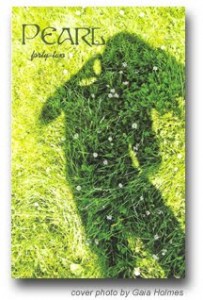 The Spring/Summer 2010 issue of Pearl is the “Fiction Issue” and features Ruth Moon Kempher, winner of the 2009 Pearl Short Story Prize.
The Spring/Summer 2010 issue of Pearl is the “Fiction Issue” and features Ruth Moon Kempher, winner of the 2009 Pearl Short Story Prize.
Spread the word!
Alehouse Final Print Issue
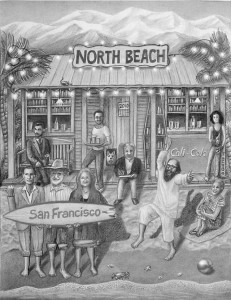 Editor Jay Rubin announced in Alehouse Number 4 that this will be the final print issue of the magazine: “While recessions may be good for poets, providing material for future poems, such economic downturns are detrimental for publishers. As a result, we’ve had to scale back our menu a bit, trimming out our usual list of essays. Next year, rather than risk the high waves of continued economic uncertainty, we plan to shutter our doors against impending storms. Regrettably, we will not publish a hard-copy issue in 2011. Instead, we’ll post an on-line version while maintaining our annual Happy Hour Poetry Awards.”
Editor Jay Rubin announced in Alehouse Number 4 that this will be the final print issue of the magazine: “While recessions may be good for poets, providing material for future poems, such economic downturns are detrimental for publishers. As a result, we’ve had to scale back our menu a bit, trimming out our usual list of essays. Next year, rather than risk the high waves of continued economic uncertainty, we plan to shutter our doors against impending storms. Regrettably, we will not publish a hard-copy issue in 2011. Instead, we’ll post an on-line version while maintaining our annual Happy Hour Poetry Awards.”
Spread the word!
Save the Words
From the folks at Oxford Fajar via Oxford University Press: Save the Words, where you can “adopt” unused, unloved, and unwanted words such words as veprecose, obarmate, and buccellation – along with hundreds more. You can also sign up for a word-a-day and find helpful suggestions on how to help spread the word. All for free.
Spread the word!
Audio :: PoemTalk
Newly released: The 35th episode of the PoemTalk series. This is a 25-minute audio podcast program, a discussion of Bruce Andrews’s “Center” from Moebius. The PoemTalkers this time are Tan Lin, Sarah Dowling, and Chris Funkhouser.
PoemTalk is a co-production of the Center for Programs in Contemporary Writing, the Kelly Writers House, and the Poetry Foundation.
Next time PoemTalk will be on the road, in Chicago, talking with three Chicagoans about Jennifer Scappettone’s rewriting of H.D.
Spread the word!
Poebe Writing Contest Winners
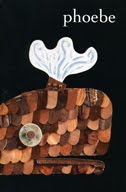 Phoebe, Fall 2010, features the winner of the Phoebe Winter Fiction Contest (Andrew Bynom), and the winner Greg Grummer Poetry Award (Aran Donovan) as well as honorable mention (Jendi Reiter).
Phoebe, Fall 2010, features the winner of the Phoebe Winter Fiction Contest (Andrew Bynom), and the winner Greg Grummer Poetry Award (Aran Donovan) as well as honorable mention (Jendi Reiter).
Spread the word!
Is Pay-Per-Review a True Review?
Victoria Strauss at Writer Beware Blog takes on Pay-Per-Review resources, with a clear focus on PW’s new ‘feature’: PW Select: Opportunity of Exploitation?
Spread the word!
Borderlands and The Translingual Aesthetic
Borderlands Texas Poetry Review (Number 34; Spring/Summer 2010) features a special section on translations from and into Spanish, from French, German, and Zapotec into English as well as works from authors who are “bilingual or, even translingual…and who write in two or more languages, and often self-translate. All these dual writers have a very unique aesthetic that lets them refine their dual creations, as they playfully go back and forth.” Editor Liliana Valenzuela goes on to discuss the joy and difficulty experienced by such work created by translingual writers as well as recognizing the work of several translators.
Spread the word!
Pongo Writing Resources for Troubled Teens
As Pongo Teen Writing Project launches their 16th year of helping youth to express difficult feelings through poetry, they also continue to offer a wealth of resources for those working with young writers, especially in similar populations as Pongo’s focus – teens who are in jail, on the streets, or in other ways leading difficult lives.
Pongo provides writing activities and other resources for teachers, counselors, and advocates working with teens.
The Pongo Project Journal is a regularly updated blog of youth writing and advocate experiences. Here are some of the most recent posts:
Approaching the Trauma, Not the Crime (by Alex Russell, about his Pongo experience in juvenile detention)
Love Is a Useless Puppy (Pongo Prize poetry, about a young woman’s love for a boy who treats her badly)
Cops (about police officers who came to understand their own unprocessed trauma from violence and death)
Thea (about a young widow who uses writing to deal with grief and isolation, and to describe a transcendent joy)
Thanks for the Rose (about a gift from the women at Mission Creek Corrections Center, at our emotional finale)
Shaun (about the ways one volunteer’s religious beliefs inform his work with Pongo)
Good for You! (about Pongo teens and caring)
Loss, Love, and Ambivalence (about Pongo authors’ role as our teachers on deep matters)
A Prize Poem (first winner of the Pongo Poetry Prize, about a young woman’s deep need for love)
Relationships (about a writing activity for the women at Mission Creek Corrections Center)
Spread the word!
Conversation :: Jeffrey Jullich and Litmus Press
Litmus Press has started a YouTube Channel which features Jeffrey Jullich, reading from and discussing his new book Portrait of Colon Dash Parenthesis with Paul Foster Johnson.
Spread the word!
Black Lawrence Press Chapbook Competition Winner – 2010
Amelia Martens has been announced as the winner of the Spring, 2010 Black River Chapbook Competition with her manuscript Purgatory. The short list and long list for the competition have been posted on the Black Lawrence Press blog.
Spread the word!
All the Whiskey in Heaven
In some fundamental ways, and at this far-flung point along the literary timeline, it's hard to believe that this is the first Charles Bernstein collection issued by a mainstream press. After all, here is a poet and essayist who has been publishing steadily for thirty-five years, yet not only that, an academic of some renown whose reputation has only become greater over those almost-four decades. What perhaps makes sense of this delay in making Bernstein's poetry available to a potentially wider audience is his foundational role within the L=A=N=G=U=A=G=E school and his guilt-by-association with that movement's so-called “difficulty.” In fact, what All the Whiskey in Heaven makes abundantly clear is that Bernstein, anyway, is an immensely readable poet whose writing is varied, investigational, and quite often robustly hilarious. Continue reading “All the Whiskey in Heaven”
Spread the word!
Bar Napkin Sonnets
It’s odd to start a collection of poems by politely turning down a pick up line, but Moira Egan just comes right out with it in the opening of the first of two dozen sonnets: “A glass of wine, a napkin, and a pen / are all I need.” But something – the cadence or the spitfire wit of the delivery, or maybe the way I imagine the speaker looking up and coyly drawing a strand of hair behind her ear as she flatly rejects her suitor – the way I, like a bully’s toady, am drawn to rejection – causes me to push past her declination and further into a formal introduction of the chapbook: Continue reading “Bar Napkin Sonnets”
Spread the word!
Shahid Reads His Own Palm
Deconstruction of identity is a recurring motif in African-American literature. The exploration of the physical, emotional and spiritual devastation wrought by slavery continues to haunt its characters be it in literature, poetry or music. The most dangerous of slavery’s effects is its negative impact on the individual’s sense of self. Alienation underpins much of Black American writing. Slaves were told they were subhuman and were traded as commodities, whose worth could be expressed only in dollars. Consequently the much criticized “one theme” of African-American writing (slavery) cannot be escaped. In Toni Morrison’s Beloved, for example, Paul D – a typical exponent – describes his heart as a “tin tobacco box.” After his traumatizing experiences at Sweet Home and, especially, at the prison camp in Alfred, Georgia, he locks away his feelings and memories in this “box,” which has, by the time Paul D arrives at 124, “rusted” over completely. By alienating himself from his emotions, Paul D hopes to preserve himself from further psychological damage. In order to secure this protection, however, Paul D sacrifices much of his humanity by foregoing feeling and gives up much of his selfhood by repressing his memories. Although Paul D is convinced that nothing can pry the lid of his box open, his strange, dreamlike sexual encounter with Beloved – perhaps a symbol of an encounter with his past – causes the box to burst and his heart once again to glow red. Continue reading “Shahid Reads His Own Palm”
Spread the word!
The Best Of (What’s Left Of) Heaven
Thursday, January 01, 2004
Dammit more champagne. Continue reading “The Best Of (What’s Left Of) Heaven”
Spread the word!
Writers in Exile: Washington Square
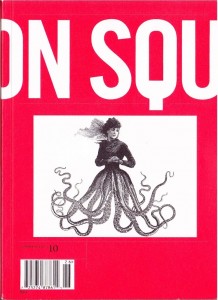 Washington Square‘s “Borderlands Issue” (Summer/Fall 2010) features writing that, rather than being interspersed throughout the issue, is given a devoted section of the magazine. According to Editor Martin Rock, though it may seem strange that the work is “cordoned” off, the “decision comes from our desire to give voice to writers in exile, be it self-imposed or otherwise, and to provide them with a space, both metaphorical and literal, to put up their feet and stay a while.” Those guests (with most works appearing in translation)include Meena Alexander, Jean-Luc Raharimanana, Drajica Rajcic, Avrom Sutzkever, Aung Way, Patrice Nganang, Soheil Najm, Huan Xiang, Idris Bazorkin, and an interview with Austin Woerner.
Washington Square‘s “Borderlands Issue” (Summer/Fall 2010) features writing that, rather than being interspersed throughout the issue, is given a devoted section of the magazine. According to Editor Martin Rock, though it may seem strange that the work is “cordoned” off, the “decision comes from our desire to give voice to writers in exile, be it self-imposed or otherwise, and to provide them with a space, both metaphorical and literal, to put up their feet and stay a while.” Those guests (with most works appearing in translation)include Meena Alexander, Jean-Luc Raharimanana, Drajica Rajcic, Avrom Sutzkever, Aung Way, Patrice Nganang, Soheil Najm, Huan Xiang, Idris Bazorkin, and an interview with Austin Woerner.
Spread the word!
Lesbian & Bi Poets
From Jezebel online: Ten Lesbian & Bisexual Poets To Fall in Love With – complete with sidebar links to each and some great additional materials posted in the comments section.
Spread the word!
Diane di Prima Spotlight in Paterson Literary Review
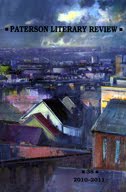 In addition to an editorial introduction to the author’s work, the 2010-2011 annual issue of Paterson Literary Review (38) features a forty-page spotlight on the poetry (and one short story) of Diane di Prima. According to editors, this spotlight will be followed up in PLR 39 with a selection of essay on di Prima’s work.
In addition to an editorial introduction to the author’s work, the 2010-2011 annual issue of Paterson Literary Review (38) features a forty-page spotlight on the poetry (and one short story) of Diane di Prima. According to editors, this spotlight will be followed up in PLR 39 with a selection of essay on di Prima’s work.
Spread the word!
Narrative Spring Contest Winners
 Winners of the Narrative Magazine Spring Story Contest:
Winners of the Narrative Magazine Spring Story Contest:
FIRST PRIZE
Scott Tucker I Would Be Happy to Leave This Asylum
SECOND PRIZE
Peter Grimes Victoria
THIRD PRIZE
Megan Mayhew Bergman Birds of a Lesser Paradise
FINALISTS
Elizabeth Benedict Death of a Deadbeat Dad
Mary Costello The Sewing Room
Marta Evans Intruder
Katherine Jaeger Ambition, Distraction, Uglification, Derision
Eli Lindert Tacos in Chicago
Alexander Maksik A Tobogganist
Jerry Mathes II Still Life
E. V. Slate The Ferry
Lynn Stegner The Anarchic Hand
Lori Tobias Going to the City
Upcoming Contests:
The Fall 2010 Story Contest, with $6,500 in prizes. Open to fiction and nonfiction. All entries will be considered for publication. Deadline: November 30, 2010.
The 30 Below Story Contest 2010, with $3,250 in prizes. All entries will be considered for publication. Open to all submissions from writers and artists age thirty and below. The contest runs from September 15 through October 29, 2010.
Spread the word!
Gospel Earth
Jeffery Beam’s celebration of the “small poem” in his latest collection, Gospel Earth, diverts his reader from ambient noise, trims the excess from the natural world. His poems stand out because they whisper, infusing Gospel Earth with stillness and secrecy. Beam creates a quiet book in form and tone, filling the page with white space that emphasizes the solitude and fragility of his images. His aim is to observe the “wide silences that do not ache to be filled,” and he invites the reader to collude with his minimalist vision. His poems emerge like Continue reading “Gospel Earth”
Spread the word!
Hold Tight
From the Morton Salt Girl to straight bois, the fever dream of Jeni Olin’s second full collection of poetry, Hold Tight: The Truck Darling Poems draws the reader into the solitary world of the personal: the private space where the ruminations and raw anxieties that dominate the human mind cavort. In this manner Olin explores identity and connection with an astute, pain-allied beauty in four sections of short poems. Continue reading “Hold Tight”
Spread the word!
The Return
If you’re reading this review, on this website, you probably know who Roberto Bolaño is/was. You know he died at age 50, likely due to complications from drug and alcohol addictions. You know he was a poet who switched to fiction to support his family. You’ve probably read at least one of his two major works, The Savage Detectives and 2666, and probably a couple of the shorter works like Amulet, Antwerp or Last Evenings on Earth. Continue reading “The Return”
Spread the word!
Kids of the Black Hole
As a member of Generation X, I’ve often wondered what happened culturally in the mid-to-late 70s. Our society went from peaceful, late-60s hippies to the mass-market and watered-down kitsch of the 80s. Dewar MacLeod’s new book can explain it all. Continue reading “Kids of the Black Hole”
Spread the word!
Diasporas in the New Media Age
Once upon a time, I could really get into this kind of writing. The title intrigued me. The topic was captivating. The whole idea of merging the concepts of new media and diaspora was fascinating. And then, I read the book. While the compilation spans a great breadth of “diaspora,” and as such is an inclusive and interesting mix of authors and definitions, the mix also falls flat as the connections between the various communities and medias the contributors talk about are hard to hold on to. For example, looking at the Digital Diaspora of India as seen in the growing emergence of Bollywood caricatures and Indian-ness in Second Life (“3D Indian (Digital) Diasporas” by Radhika Gajjala), juxtaposed with the use of social networking and Orkut in the outlanders of Brazil (“Tidelike Diasporas in Brazil: From Slavery to Orkut” by Javier Bustamante). The overarching understanding tacit in most of the contributors’ writing was that societal bonds, while already tenuous in splintered or diasporic communities, may be further impacted by the use and creation of “virtual” communities that reify or overblow particular essences of the original community (especially in “Maintaining Transnational Identity: A Content Analysis of Web Pages Constructed by Second-Generation Caribbeans” by Dwaine Plaza). Continue reading “Diasporas in the New Media Age”
